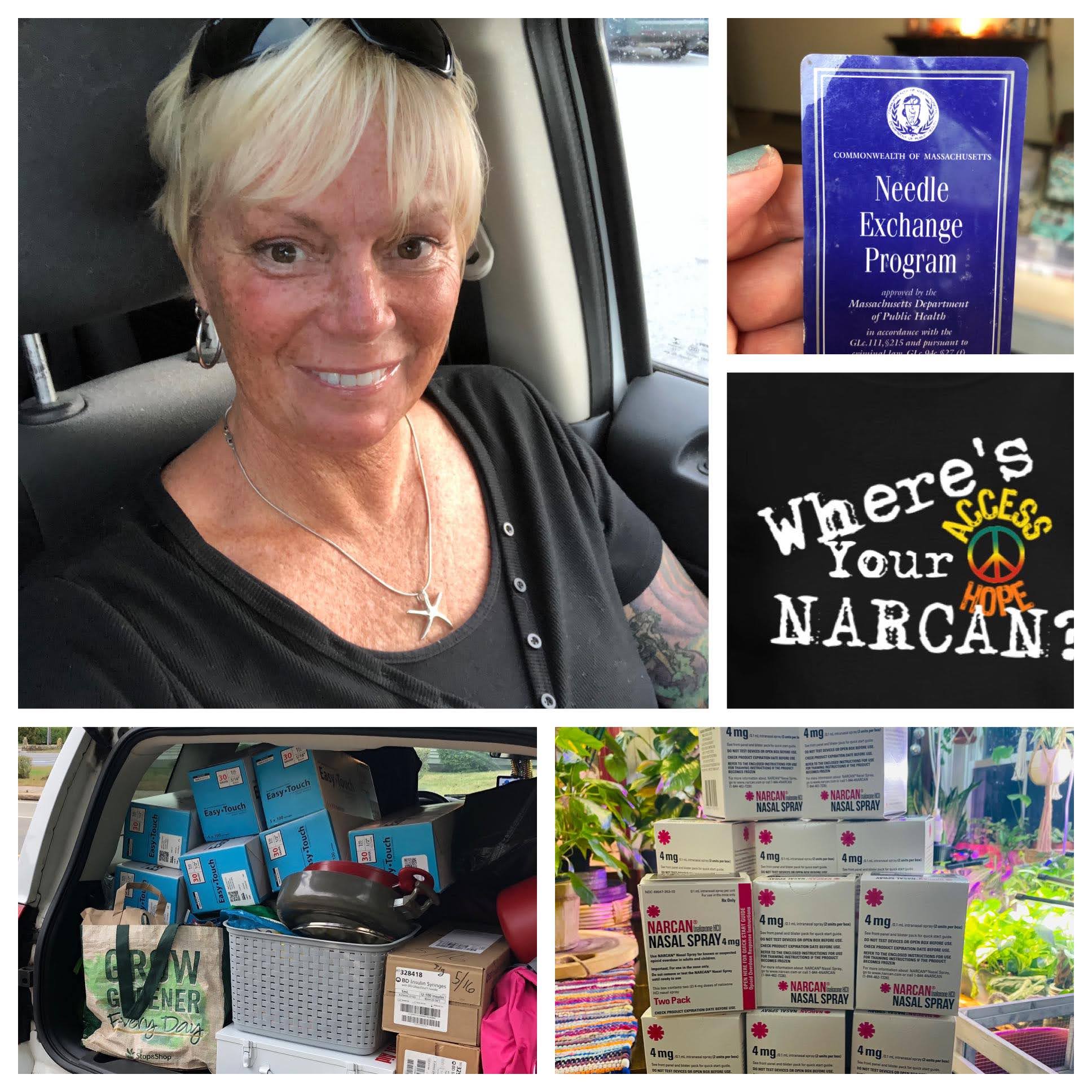
She Remembers Their Names and Faces
By Kerry J. Bickford, Voices Editor
When Kim Powers is haunted by memories of people she tried desperately to save in her years as a harm reductionist, she turns to a journal she keeps with pictures, stories, and anecdotes about each one of them. “There are 167 faces and stories in it from seven years of work in Hyannis -- and I will never forget any of them,” she says. Sometimes Kim grabs a picture from the obituary or from Facebook, but the important message is that it’s healing for her to look back and remember their names. She never forgets their faces.
When Kim began her harm-reduction outreach 30 years ago, a syringe cost five dollars and was used -- and shared -- repeatedly. People were getting HIV in record numbers, but no one cared, and there was no detox or treatment at that point. “Drugs were killing everyone,” said Kim, so she began sitting with the friends to keep them safe (while they used) and became a one-woman force to be reckoned with in the early days of implementing harm reduction. Strategies were limited at the time, but sitting with people after they used was one safeguard against death.
Since then, Kim’s arsenal has expanded to include clean syringes, alcohol wipes, and other safe practices for those with SUD. In her work, she sees people who have made the decision to avoid clinics and public scrutiny by remaining on the fringes of society across Cape Cod, but Kim continues to keep a safe presence -- by phone or nearby -- while people use (as described in this recent article by K.C.Myers of the Provincetown Banner). Kim has had her share of struggles with people and organizations that disagree with some of her methods, but she remains focused on reducing deaths by overdose through harm reduction. Although her work is funded intermittently, Kim relies heavily on donations to purchase supplies and gas to travel to many of the remote locations people have retreated to -- the woods, their cars and in camps and makeshift housing.
“My dream is to have one outreach worker in each Cape Cod town who works with the local board of health and the police department, and is the go-to person to provide Narcan, education, syringes, testing, referrals for service, as well as other safe practices,” Kim says.
Because of the restrictions on agencies that provide harm reduction, widely recognized as an essential service for people with SUD until they are ready for treatment, a program such as this could patch holes in a safety net that is currently full of them. Until then, Kim and other street warriors will continue to recognize the value of every human life in their determination to meet people where they are and reduce harm.
